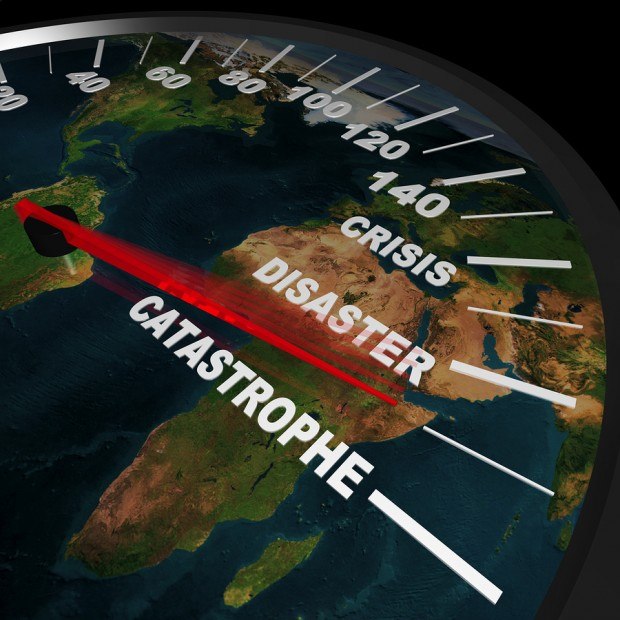U.S. storms, Australian bushfires and hailstorms, and floods in various countries across the globe caused more than $3 billion in economic damages during January, according to Aon’s Global Catastrophe Recap report, which analyzes the monthly impact of natural disaster events.
The report revealed that a powerful winter storm across central and eastern areas of the United States early in the month killed at least 12 people and caused total economic losses estimated in excess of $1 billion, with more than two-thirds expected to be insured. The most notable damages resulted from a multiday severe weather outbreak that saw at least 79 confirmed tornado touchdowns and hail and straight-line winds that affected parts of Texas, Oklahoma, Missouri, Arkansas, Louisiana, Mississippi, Alabama, Tennessee, Kentucky and Georgia, Aon’s report said.
Meanwhile, continued heatwaves during January led to additional bushfires in Australia across sections of New South Wales, Queensland, South Australia, Victoria and Western Australia. The combined death toll for the 2019-2020 Australia bushfire season rose to at least 34 amid the destruction of more than 5,900 homes and other structures. The Insurance Council of Australia (ICA) noted that at least 20,000 claims had been filed, with insured losses reaching A$1.65 billion (US$1.1 billion) for the fires that have been ongoing since early November 2019. These totals inevitably will rise further, said Aon.
Australia was also hit with powerful thunderstorms during the month, resulting in large hail in major metro areas of Australia – including Melbourne, Canberra and Sydney – causing widespread damage to structures and vehicles. The report quoted figures from the Insurance Council of Australia, which reported 69,850 claims filed with estimated insured losses of A$638 million (US$430 million) as of Feb. 4. A majority of the claims were filed in the Australian Capital Territory.
“Secondary perils continue to ignite further conversations across both public and private sector interests as direct impacts have risen in recent years,” said Steve Bowen, director and meteorologist within Aon’s Impact Forecasting team.
“The start of 2020 only enhanced the need for more discussions, as record-breaking wildfires persisted in Australia and major inland flood events were recorded in parts of Europe, the Middle East and Africa,” added Bowen. “With humanitarian and property vulnerabilities continuing to be exposed during these events, the need to implement resilience and adaptation measures will only become more imperative. The insurance industry remains positioned to lead in this space.”
Other natural hazard events to have occurred in January include:
- A series of strong earthquakes around Puerto Rico killed one person. More than 5,000 homes and structures were damaged or destroyed, resulting in an estimated economic cost from the tremors of at least US$450 million. Insured losses were only a fraction of that total.
- Significant flooding affected southeastern Brazil from Jan. 17-29, killing at least 70 people and displacing tens of thousands after the heaviest rains in 110 years. The federal government announced that 892 million Brazilian real (US$210 million) in aid would be used to cover damage costs.
- Prolonged heavy rains resulted in notable flooding in parts of northern Madagascar and Mozambique during the month, causing at least 60 fatalities and more than 25,000 homes affected in both countries.
- Record-breaking rainfall in central and northern Israel on Jan. 4-9 led to widespread flooding and notable material losses in the country. Local insurance entities expected at least 45,000 claims to be filed with losses exceeding 1.5 billion Israeli new shekel (US$434 million). Total economic losses were estimated beyond NIS2 billion (US$580 million).
- A winter storm system brought snow and rain to parts of Pakistan and Afghanistan, triggering avalanches, landslides and flash floods. As many as 107 people were killed in Pakistan after more than 1,300 homes were damaged or destroyed.
Source: Aon/Impact Forecasting





















 AI Got Beat by Traditional Models in Forecasting NYC’s Blizzard
AI Got Beat by Traditional Models in Forecasting NYC’s Blizzard  Viewpoint: Runoff Specialists Have Evolved Into Key Strategic Partners for Insurers
Viewpoint: Runoff Specialists Have Evolved Into Key Strategic Partners for Insurers  Beyond Automation: The Emerging Role for Contextual AI in Insurance
Beyond Automation: The Emerging Role for Contextual AI in Insurance  From Skill to System: The Next Chapter in Insurance Claims Negotiation
From Skill to System: The Next Chapter in Insurance Claims Negotiation 









